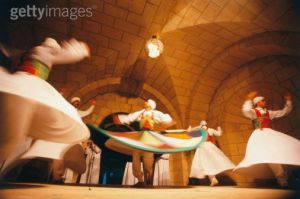BE WITH THOSE WHO HELP YOUR BEING
I was sent this poem written by the Sufi poet, Rumi, sometime ago and it continues to inspire me on many different levels:
 “Be with those who help your being. Don’t sit with indifferent people; whose breath comes cold out of their mouths. Not these visible forms, your work is deeper.
“Be with those who help your being. Don’t sit with indifferent people; whose breath comes cold out of their mouths. Not these visible forms, your work is deeper.
A chunk of dirt thrown in the air breaks to pieces. If you don’t try to fly, and so break yourself apart, you will be broken open by death, when it’s too late for all you could become.
Leaves get yellow. The tree puts out fresh roots and makes them green. Why are you so content with a love that turns you yellow?”
 This poem has become a daily invitation and a challenge to me, to bravely face all of my preconceived notions of who I am or who I thought I was and what my purpose is. It reminds me that in this moment, and then in that one, I have to commit to the truth of the hard work and courage that goes along with being that person who is not content with “a love that turns you yellow.”
This poem has become a daily invitation and a challenge to me, to bravely face all of my preconceived notions of who I am or who I thought I was and what my purpose is. It reminds me that in this moment, and then in that one, I have to commit to the truth of the hard work and courage that goes along with being that person who is not content with “a love that turns you yellow.”
It involves becoming a person ready and receptive to the fearless and dangerous and REAL love that coaxes, prods, and pushes your being towards the flight God intended for you from your moment of creation.
Let yourself be thrown up in the air like a chunk of dirt breaking into tiny pieces? Wow, this is a radical letting go of the Self that sounds like Bungee jumping to me. Intellectually, I know that living without a safety net reaps rewards that the majority of folks will never taste…yet still, there is that jump…
For much of my life, while I have outwardly appeared bold and brazen, my choices reflected a need for security, a tendency to complacency, and a holding on so tightly…I’m surprised I didn’t instantaneously combust! Being broken open was not on MY agenda…emphasis on the word my.
 But life broke me open anyway (against my will) and what a ride! When you surrender and allow yourself to be broken open, people serendipitously appear who connect with you on a deeper level and bearing such gifts as love and wisdom and compassion that you wondered where all of these souls had been hiding. They benefit from your person, your gifts, and your love too. Nature mirrors this vibrancy of living in the light, of moving towards the light, the way a tree strains and grows towards the sun.
But life broke me open anyway (against my will) and what a ride! When you surrender and allow yourself to be broken open, people serendipitously appear who connect with you on a deeper level and bearing such gifts as love and wisdom and compassion that you wondered where all of these souls had been hiding. They benefit from your person, your gifts, and your love too. Nature mirrors this vibrancy of living in the light, of moving towards the light, the way a tree strains and grows towards the sun.
So here I am again in this moment, palms open, with the way of Jesus Christ, the path of the Buddha, the latest bestselling self-help book of Eckhart Tolle; loosening by bits that hard scab of self-will that seems to be resistant to removal, yet ripped off it must be as it blocks true joy. Expanding my love beyond the border of friends and family, to include those difficult to love, those who have caused great hurt, the stranger, the plants and animals…
 There are bright green shoots sprouting in my soul, fragile with promise and vulnerable to much, anticipating and percolating under the fertile food of the spirit. It is a waiting time, much like the buds in winter. It can be dark and scary at times, like it is at the roots of all things. Yet actively waiting is anything but indifferent and lucky for me there is still heat coming from my mouth.
There are bright green shoots sprouting in my soul, fragile with promise and vulnerable to much, anticipating and percolating under the fertile food of the spirit. It is a waiting time, much like the buds in winter. It can be dark and scary at times, like it is at the roots of all things. Yet actively waiting is anything but indifferent and lucky for me there is still heat coming from my mouth.




